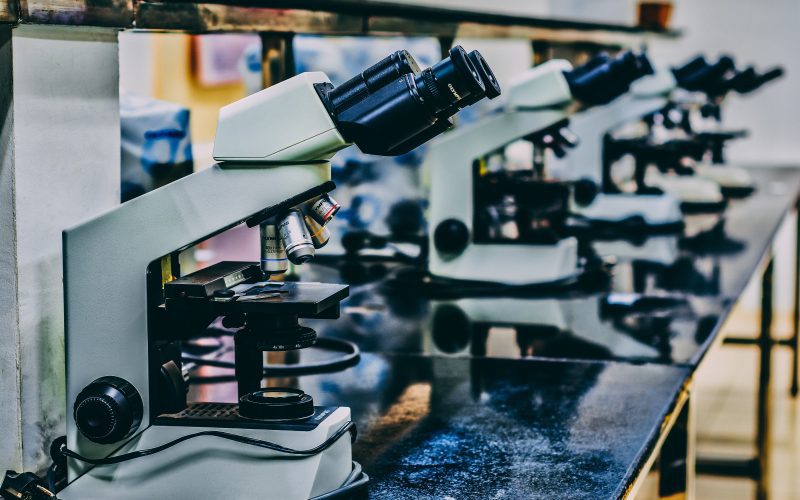Public health is a topic that affects all of us, and in recent years, it has become increasingly politicized. With the COVID-19 pandemic shining a spotlight on the intersection of science and politics in public health, it’s more important than ever to understand how these two worlds interact. In this blog post, we’ll explore the impact of science on public health policy and how to navigate the complex landscape where politics meets public health. We’ll also delve into the role that media plays in shaping our understanding of these issues so that you can make informed decisions about your own health and safety. So buckle up as we dive deep into this fascinating topic!
The politicization of public health
Public health has always been a subject of concern for governments around the world. However, in recent years, it has become increasingly politicized. This trend was particularly evident during the COVID-19 pandemic when public health measures such as mask mandates and lockdowns became hotly debated political issues.
The politicization of public health is not new, but its impact on policy decisions can be significant. Politicians may prioritize their own interests or those of their constituents over scientific evidence when making public health decisions. In some cases, this can lead to flawed policies that put people’s lives at risk.
One example of this is the anti-vaccine movement that gained traction in many countries as politicians pandered to conspiracy theorists and other fringe groups. The result was an increase in vaccine hesitancy among large segments of the population and outbreaks of preventable diseases such as measles.
Another issue with the politicization of public health is that it can undermine trust in institutions such as healthcare systems and regulatory bodies. When people believe that politics rather than science is driving policy decisions, they may lose faith in these institutions’ ability to protect them from harm.
While politics will always play a role in public health decision-making to some extent, we must strive for policies based on scientific evidence rather than political expediency or ideology.
The impact of science on public health policy
Public health policy plays a critical role in protecting and promoting the well-being of populations. However, it is not always easy to develop effective policies that balance scientific evidence with political considerations.
Science provides essential information that policymakers use to make informed decisions about public health issues. For example, scientific research can help identify risk factors for diseases, evaluate the effectiveness of interventions, and inform strategies for disease prevention and control.
However, science alone cannot determine public health policies. Political factors such as economic constraints, societal values, and competing interests also play an important role in shaping policy decisions.
Moreover, translating scientific findings into action can be challenging due to various reasons such as limited resources or lack of political will. Therefore, policymakers must understand the implications of scientific evidence when making decisions related to public health issues.
The impact of science on public health policy requires close collaboration between scientists and policymakers to ensure evidence-based decision-making. It is crucial that policymakers have access to up-to-date scientific knowledge when developing policies affecting public health outcomes.
While science does not dictate all aspects of public health policy development; it provides vital insights necessary for sound policymaking based on empirical data rather than personal opinions or biases.
How to navigate the intersection of science and politics in public health
Navigating the intersection of science and politics in public health can be a challenging task. It requires balancing scientific evidence with political considerations to make decisions that benefit public health.
One way to navigate this intersection is by promoting transparency and open communication between scientists, policymakers, and the public. By sharing data and research findings openly, everyone involved can make informed decisions based on the best available evidence.
Another approach is to engage all stakeholders in decision-making processes. This means involving community leaders, healthcare professionals, advocacy groups, and other relevant parties in discussions about public health policies. With diverse perspectives at the table, it becomes easier to find common ground on complex issues.
It’s also important to recognize that science doesn’t always provide clear-cut answers when it comes to public health policy. There may be gray areas where different interpretations of scientific studies exist. In such cases, policymakers need to carefully consider all available evidence before making a decision.
Navigating the intersection of science and politics also involves being aware of biases or conflicts of interest that may influence decision-making processes. Understanding these factors can help ensure that policymaking is objective and based solely on what’s best for public health.
Navigating the intersection of science and politics in public health requires collaboration among many different stakeholders while prioritizing transparency, objectivity and an openness towards new ideas or possibilities for action within this field!
The role of the media in public health
The media plays a significant role in shaping public opinion on health issues. News outlets are often the primary source of information for people, and the way they report on public health can have a profound impact on how individuals perceive and respond to health threats.
However, not all media coverage is created equal. Sensationalist headlines or misinformation can create unnecessary panic, while incomplete or inaccurate reporting can lead to confusion and mistrust.
On the other hand, well-researched and balanced reporting can help educate the public about important health topics and highlight critical issues that require action from policymakers.
It’s crucial that journalists covering public health issues have a solid understanding of scientific research methods so they can accurately interpret data and convey its significance to readers/viewers/listeners. They also need to be aware of potential biases in their reporting, whether due to political affiliations or financial interests.
Ultimately, responsible journalism has an important role in ensuring that accurate information reaches the public so that we can make informed decisions about our own health as well as contribute towards making healthier communities overall.
Conclusion
Navigating the intersection of science and politics in public health can be a daunting task, but it is essential to ensure that evidence-based policies are implemented for the greater good. The politicization of public health has led to misinformation and distrust among the general public, which can have dire consequences during pandemics or other health crises.
However, science remains a powerful tool in advancing public health policy. It is crucial to leverage scientific research and expertise while considering political feasibility when making decisions that impact people’s lives.
The media also plays a vital role in shaping public opinion on matters related to public health. As such, journalists must report accurately and responsibly on issues surrounding science and politics.
To summarize, navigating the intersection of science and politics requires finding common ground between these two worlds. While scientists focus on facts, politicians consider economic implications and societal values. Therefore collaboration between these two disciplines will enable us to create effective policies based on scientific data while ensuring they work within current social norms.
Ultimately we need solutions based upon sound evidence if we want our communities to be healthier places where future generations can thrive both socially as well as economically; only with this approach will we achieve progress towards better outcomes for all involved parties – citizens included!











